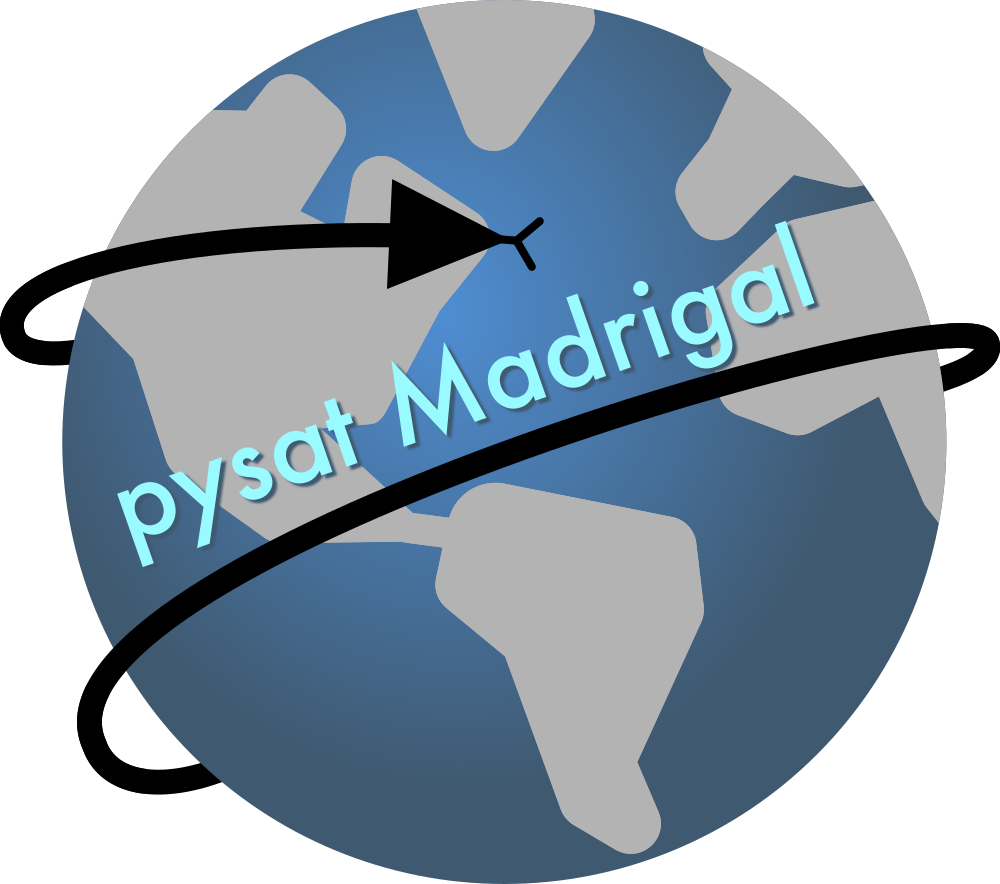
pysatMadrigal: pysat support for Madrigal data sets
pysatMadrigal allows users to import data from the Madrigal database into pysat (pysat documentation).
Installation
The following instructions provide a guide for installing pysatMadrigal and give some examples on how to use the routines.
Prerequisites
pysatMadrigal uses common Python modules, as well as modules developed by and for the Space Physics community. This module officially supports Python 3.6+.
| Common modules | Community modules |
|---|---|
| h5py | madrigalWeb>=2.6 |
| numpy | pysat >= 3.1.0 |
| pandas | |
| xarray |
PyPi Installation
pip install pysatMadrigalGitHub Installation
git clone https://github.com/pysat/pysatMadrigal.gitChange directories into the repository folder and run the setup.py file. For a local install use the "--user" flag after "install".
cd pysatMadrigal/
python -m build .
pip install .Examples
The instrument modules are portable and designed to be run like any pysat instrument.
import pysat
from pysatMadrigal.instruments import dmsp_ivm
ivm = pysat.Instrument(inst_module=dmsp_ivm, tag='utd', inst_id='f15')Another way to use the instruments in an external repository is to register the
instruments. This only needs to be done the first time you load an instrument.
Afterward, pysat will identify them using the platform and name keywords.
pysat.utils.registry.register('pysatMadrigal.instruments.dmsp_ivm')
ivm = pysat.Instrument('dmsp', 'ivm', tag='utd', inst_id='f15')The package also include analysis tools. Detailed examples are in the documentation.